Ha Giang Travel: A Journey to Vietnam’s Northern Frontier
At Vietnam’s northernmost point, Ha Giang captivates travelers with its amazing scenery and rich cultural legacy. Terraced fields, soaring limestone cliffs, and the Nho Que River meandering through spectacular valleys abound in this area, which is renowned for its tough beauty and amazing ethnic diversity. Come investigate Ha Giang travel with MOTOGO Tours!
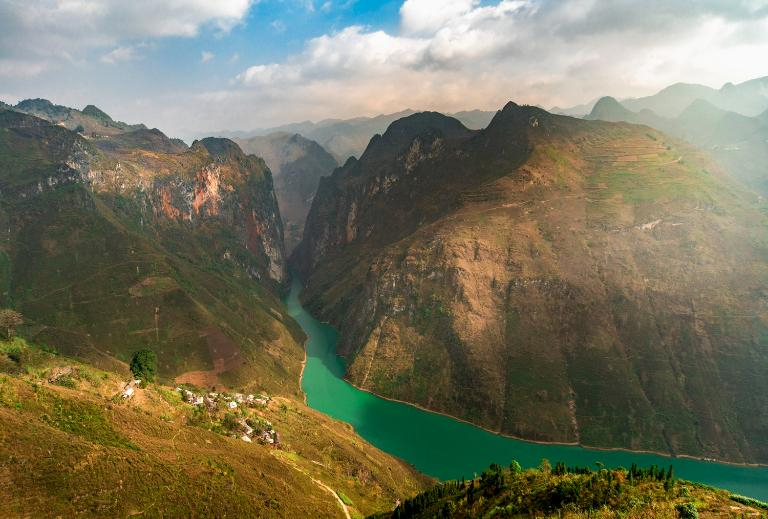
Where is Ha Giang?
Ha Giang, which lies in northeastern Vietnam, is home to several ethnic groups including the La Chi, Lo Lo, H’Mong, and Thai and borders China. Ha Giang, almost 300 kilometers from Hanoi, is well-known for its majestic stone plateaus and some of the most breathtaking scenery in nation.
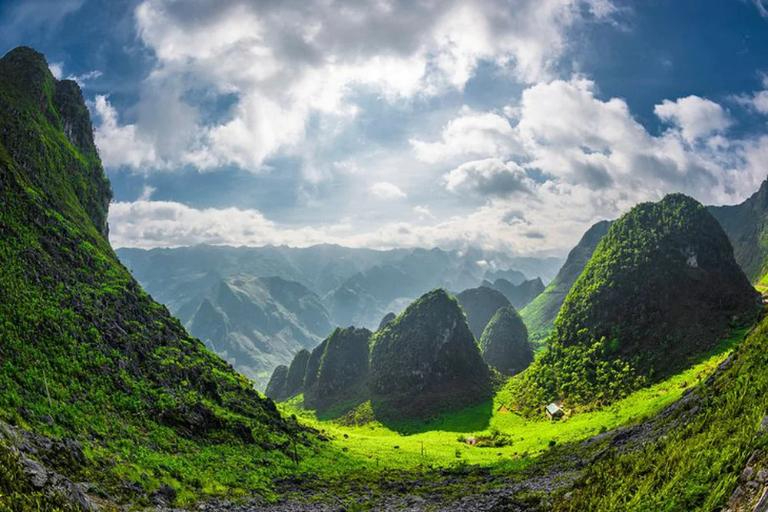
Best Time to Visit Ha Giang
Experienced visitors claim Ha Giang offers something year-round, with every season highlighting its own appeal. Visit early spring for brilliant blossoms. For the Khau Vai Love Market and the season of water-filled terraces, April and May are perfect.
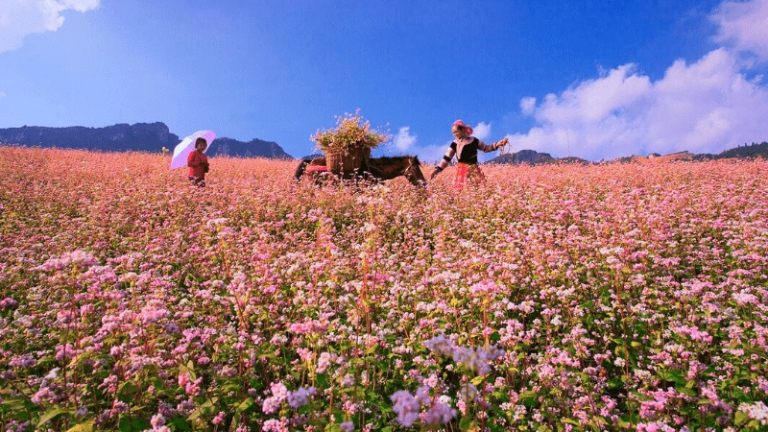
Particularly in September and October, autumn blankets Ha Giang with pink-purple buckwheat blossoms and golden rice terraces. Visitors will enjoy colder temperatures and energetic highland markets in December.
Must-visit Destinations in Ha Giang
1. Yen Minh Pine Forest
Often likened to Vietnam’s own Da Lat, the Yen Minh Pine Forest boasts tall, luxuriant pine trees and cool, pure air. Visitors travel some exciting mountain routes to reach this calm forest, rewarded by a lovely, peaceful scene that is very worth the effort. Photographs and environment enthusiasts both will not want to miss the gorgeous fall retreat the forest offers as sunshine dances through the trees.
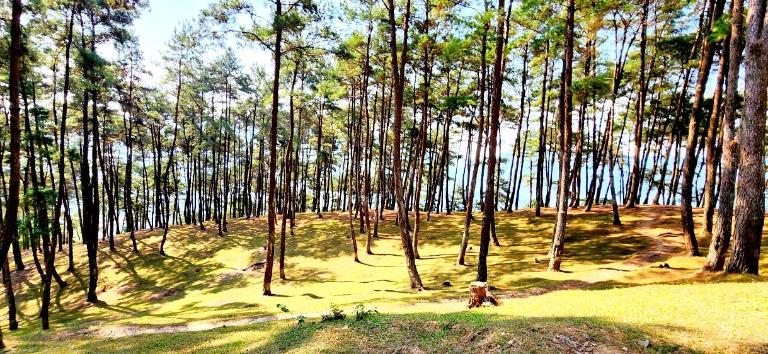
2. Pho Bang – A Timeless Village
Renowned for its historic, traditional houses and distinctive architecture, Pho Bang is a fascinating community in Ha Giang’s Yen Minh District. Beautiful roads round the village, and mountains and farmland accentuate its peaceful appeal. The settlement gets more appealing in November when buckwheat blossoms turn the ground a sea of purple and pink. Along with the meadows of wildflowers growing along the village walks, the valley of roses close-by is must-see.
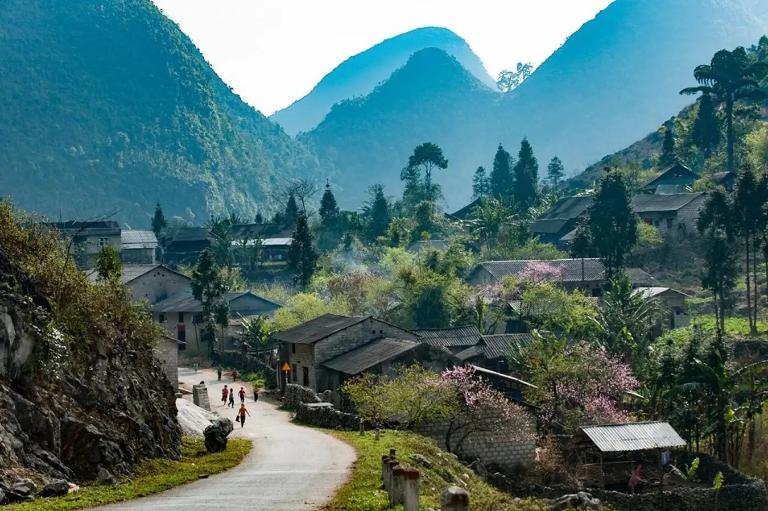
>>> Unforgettable Journey to Quan Ba Heaven Gate: A Hidden Gem in Vietnam
3. Sung La Valley – A Flower-Filled Paradise
Called the “flower of the stone plateau,” Sung La Valley boasts calm hamlet life and vivid floral fields. Sung La is carpeted with fields of vibrant flowers in spring, including the well-known buckwheat and mustard blossoms, producing a lovely, dreamlike environment ideal for photographers. Top stop in Ha Giang Sung La is naturally beautiful and rich in culture.
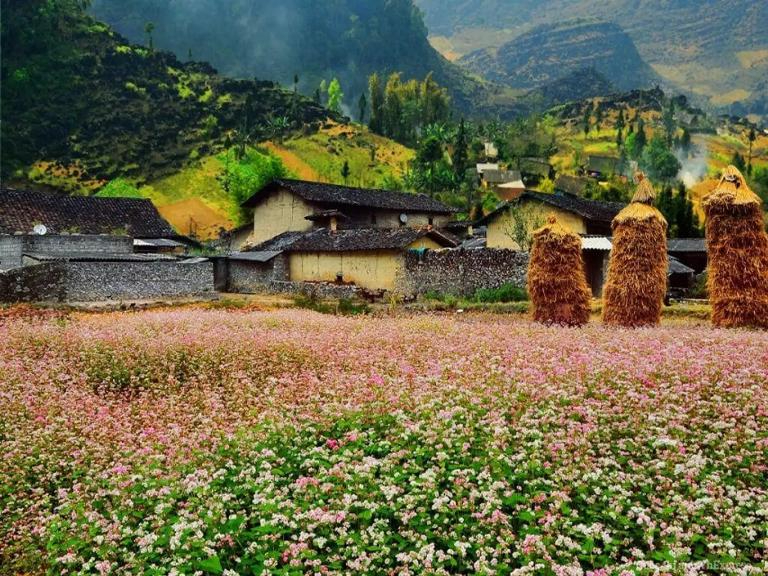
4. Hmong King’s Palace
Originally belonging to a wealthy H’mong king, the Hmong King’s Palace is a historic house situated on a little hill in Dong Van District. Nestled between majestic mountains and tall trees, this stone-and- wood palace features a fascinating mix of Chinese, French, and H’mong architectural forms. Having more than a century of existence, the home is still a famous emblem of Ha Giang’s cultural legacy.
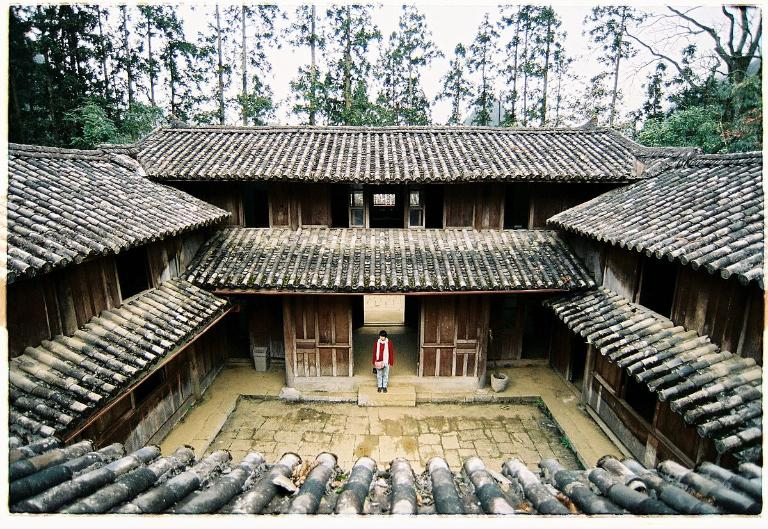
5. Dong Van Ancient Town – A Cultural Crossroad
Dong Van Ancient Town, a little but lovely village full of historical and cultural riches, is well-known for its tiled rooftops, winding lanes, and aged stone walls. The H’mong, Tay, Dao, and Lo Lo are among the several ethnic groups that call this area home; each has distinct customs and dress. For those wishing to sample local cuisine, browse for traditional handicarticles, or participate in the celebrations of ethnic festivals, Dong Van’s energetic markets are ideal.
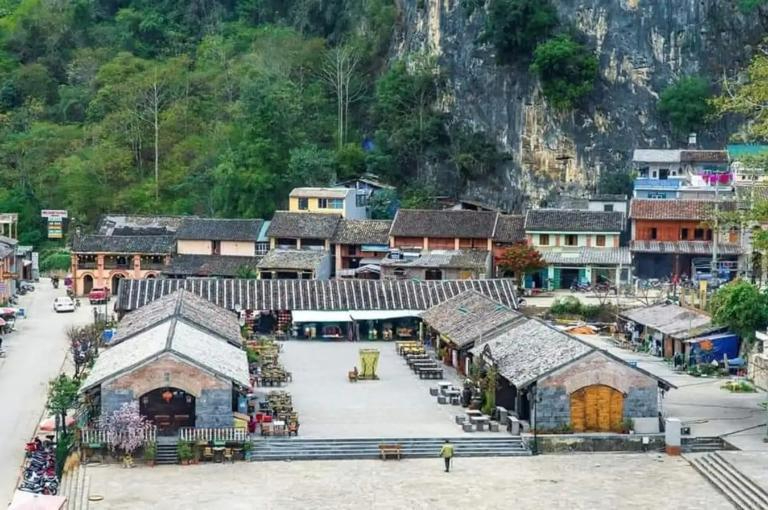
6. Dong Van Karst Plateau
Covering four districts—Dong Van, Meo Vac, Yen Minh, and Quan Ba—the Dong Van Karst Plateau is a UNESCO Global Geopark and among Vietnam’s most striking natural beauties. Renowned for its spectacular, tough scenery and imposing rock formations, this plateau provides breathtaking vistas all around every turn. Trekking or riding across the plateau allows guests to really appreciate the geological relevance and special natural beauty of the area.
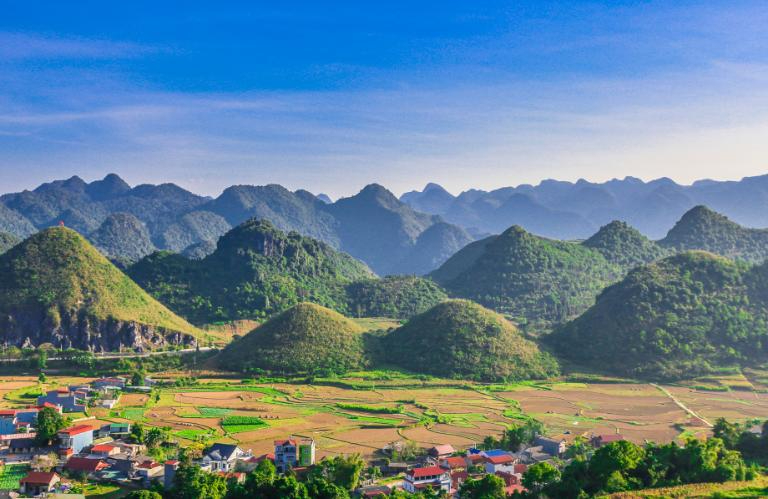
>>> Explore Pao’s House: A Place Reflecting the Beauty of Hmong Culture
7. Nho Que River – A Serene Gem of Ha Giang
The Nho Que River, a picturesque treasure noted for its emerald-green waters and peaceful atmosphere, flows gently between soaring limestone cliffs. Along the river, visitors may kayak or boat travel across the breathtaking Tu San Alley, where sheer canyon walls rise on both sides. This river trip provides a different viewpoint on the stunning scenery of Ha Giang and a quiet getaway into nature.
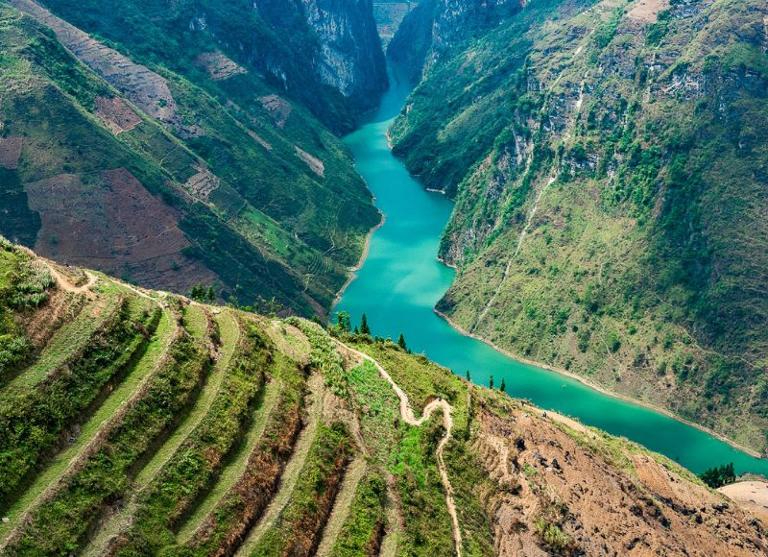
8. Lung Cu Flag Tower
Situated atop Dragon Mountain in Dong Van District, the Lung Cu Flag Tower is a national pride emblem of Vietnam and marks its northernmost point. Ascending a set of steps, visitors arrive at the tower to be met with expansive views over the nearby mountains and communities. Important cultural and historical monument, the flag tower provides evidence of Vietnam’s past and togetherness.
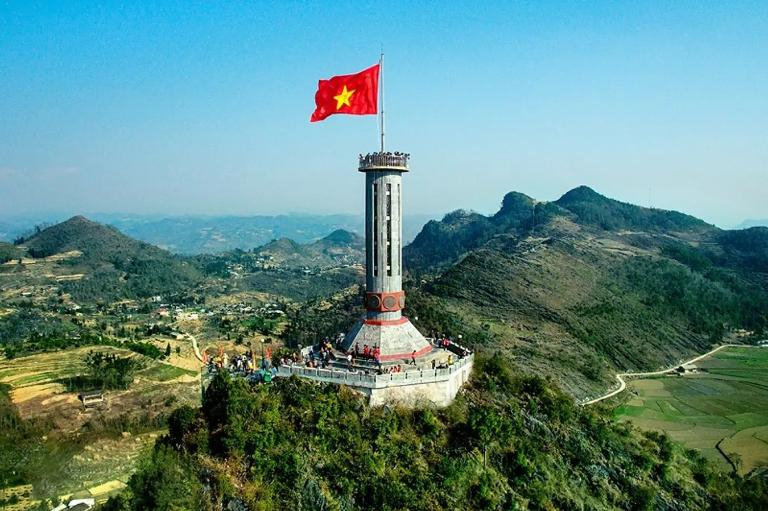
9. Ma Pi Leng Pass – The King of Passes
Among Vietnam’s most well-known mountain crossings, Ma Pi Leng—also referred to as the “King of crossings—offers visitors an exciting drive. Sharp cliffs, meandering roads, and steep gorges that provide an amazing adventure define the pass, which runs between Dong Van and Meo Vac. Visitors may pause at the highest point of the route to enjoy the large picture of rocky mountains, the Nho Que River, and rich valleys below.
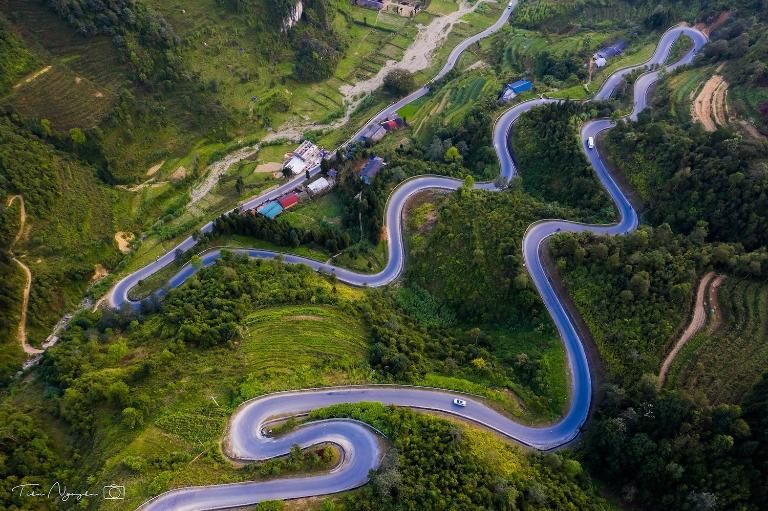
>>> Explore Tham Ma Pass – An Impressive Mountain Route in Ha Giang
Where to Stay in Ha Giang
From luxurious hotels to reasonably priced homestays, Ha Giang provides a range of lodging to suit different budgets and tastes. These are some excellent suggestions.
Hotels
For a first-rate experience, pick among the elegant hotels. Ha Giang boasts several first-rate hotels with superb architecture and service. Among the other choices are Historic House Ha Giang, Royal Ha Giang, and Phoenix Ha Giang.
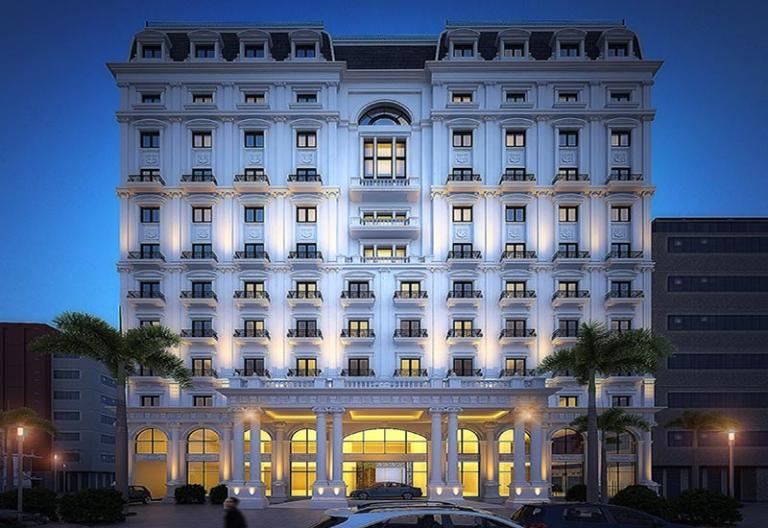
Homestays
Travelers looking for cultural immersion and economy may choose homestays. Ha Giang’s homestays are kept nicely and provide unusual opportunities. In Yen Minh, popular selections are Meo Vac Homestay, Dong Van Homestay, Lo Lo Homestay, and Du Gia Homestay.
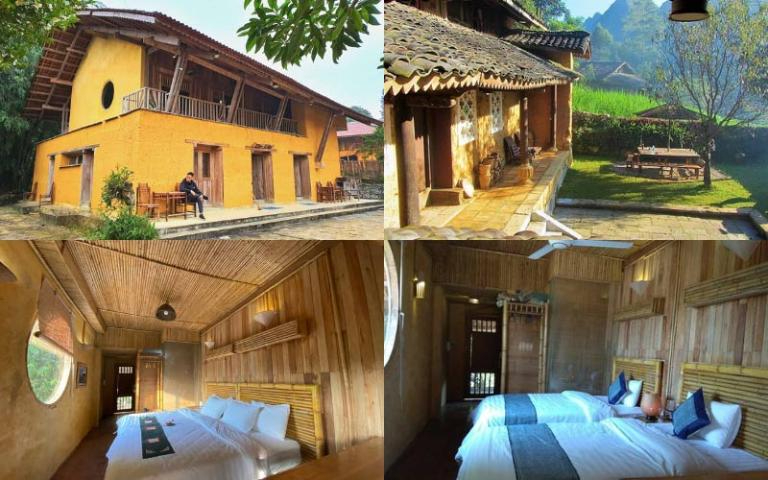
Guesthouses
Travelers with budgets will find lots of guesthouses all around Ha Giang. For those on a tighter budget, guesthouses are neat, cozy, and fairly priced. Think on Green Hill Hostel, Long Beo Guesthouse, or Lan Huong Guesthouse.
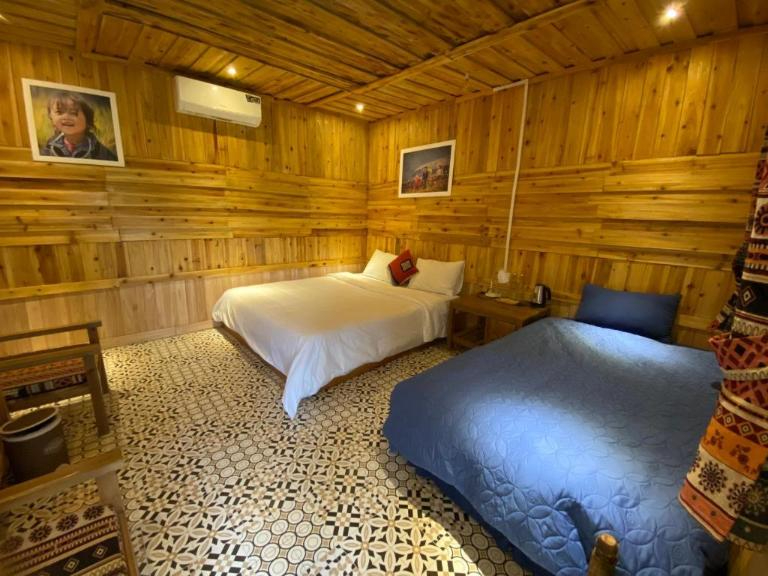
>>> Explore Accommodation in Ha Giang: Complete Guide 2024
Local Cuisine in Ha Giang
1. Au Tau Porridge
For anybody visiting this northern area, au tau poridge is a must-try. Made from the root of the au tau plant, noted for its unique bitter taste, the porridge is made by soaking, boiling, and thoroughly heating the roots to eliminate any toxicity. Often cooked with sticky rice and pork, the fragrant porridge results from a great mix of bitter, savory, and umami tastes. Particularly well-liked on the cold Ha Giang evenings, this meal warms from the inside out.
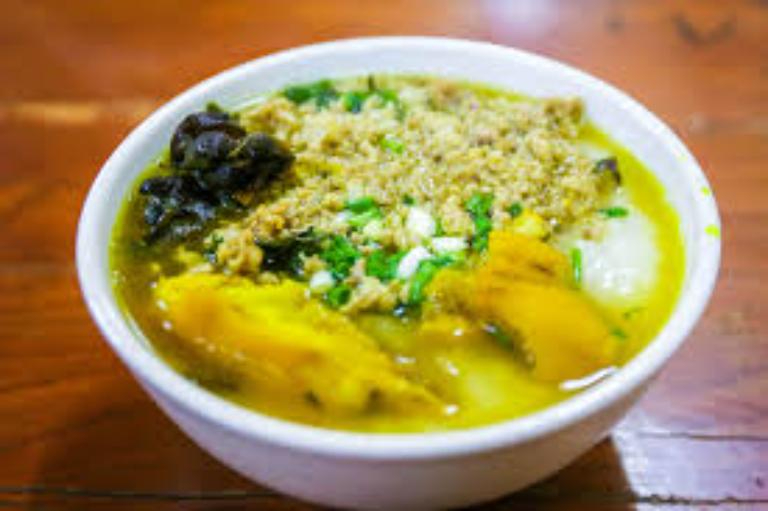
2. Five-Colored Sticky Rice
For the ethnic groups of Ha Giang, five-colored sticky rice is a vivid, striking meal with cultural value. Traditionally, using herbs and plants, this sticky rice is painted in five natural colors: yellow, red, green, purple, and white. Often prepared for celebrations and festivities, it represents happiness, unity, and wealth. Steaming the rice in banana leaves and seasoned with the subdued earthiness of locally grown ingredients results in a distinctive scent and texture.
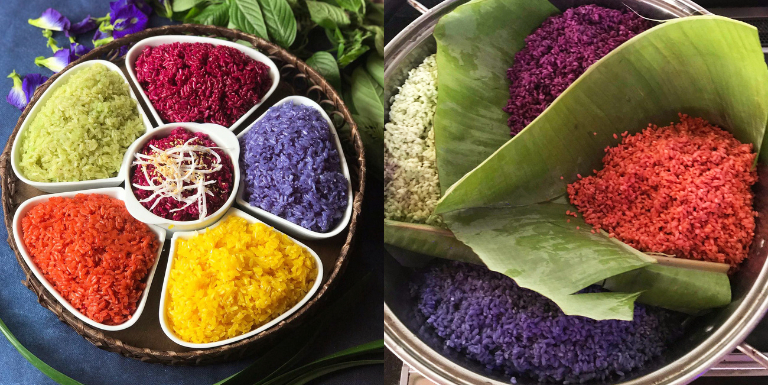
>>> Explore Bac Me Lam Rice: A Culinary Treasure of Ha Giang
3. Thang Co
Thang Co is a meal firmly anchored in H’mong culture and has been enjoyed in Ha Giang for generations. Made historically from horse flesh and a mix of organs, thang co is grilled with a range of spices including lemongrass, cardamom, and star anise. The end effect is a rich, savory stew that offers a distinctive dining experience particularly when combined with the local corn wine.
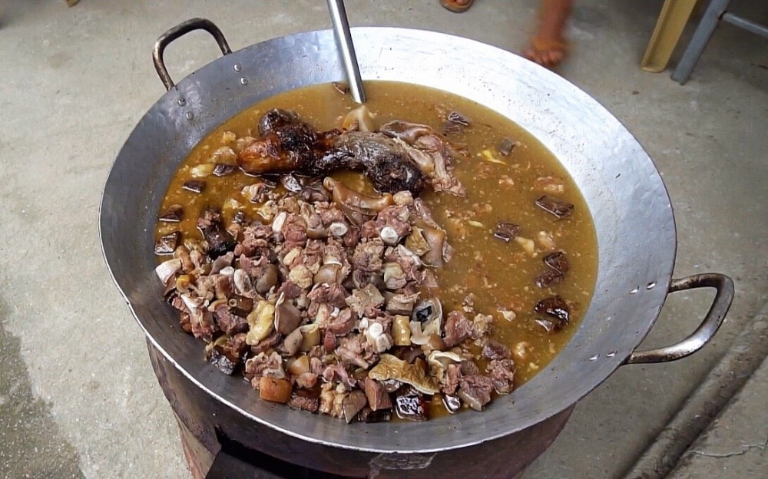
4. Corn Wine
The corn wine of Ha Giang’s highlands is well-known; this indigenous drink has evolved into a ritual unto itself. Made from nearby corn and fermented using leaves gathered from nearby forests, this drink tastes strongly of earthiness. To produce a smooth, strong drink, the labor-intensive corn wine-making method grinds, fermentes, and distills the maize. Almost each village gathering will have corn wine available since it’s usually drank during celebrations and festivities.
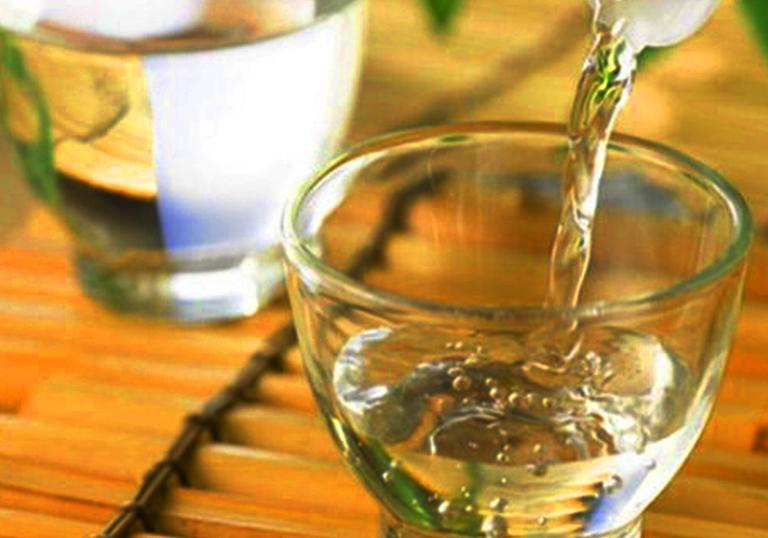
5. Buckwheat Cake
Buckwheat cake is made with buckwheat flour, a crop suited for Ha Giang’s rugged topography. Locals love the steamed cakes because of their delicate texture and somewhat nutty taste as well as their gentle heat level. Some guests savor buckwheat cake with honey to provide a little sweetener to counter its understated bitterness.

6. Smoked Buffalo or Pork
A staple preserved cuisine of the Tay, Dao, and H’jong people of Ha Giang is smoked buffalo meat. After marinating buffalo or pork with spices like chile, garlic, and wild herbs, the meat is smoked over an open fire for several days to let it absorb a strong, smokey taste. Usually accompanied with local rice wine for a real taste of Ha Giang, this dish is both a side meal and a snack.
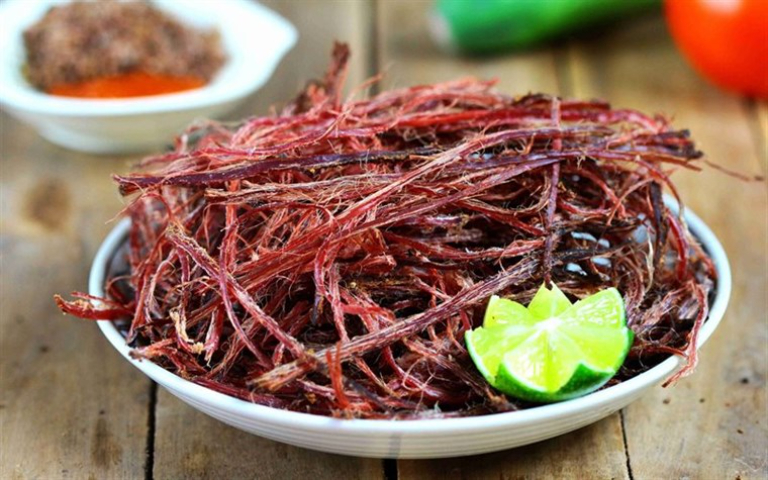
>>> Explore Ha Giang Sausage: Discover the Authentic Taste of Northern Vietnam
7. Sour Noodle Soup
Ha Giang’s variation on Vietnam’s famous noodle meal is sour noodle soup, which tastes sour from a vinegar-based broth and pickled veggies. Phở chua usually consists in shredded pork or roasted duck, topped with peanuts, herbs, and garlic, unlike the classic pho with beef or chicken. Often presented cold, this reviving meal is ideal for Ha Giang in the summer months.
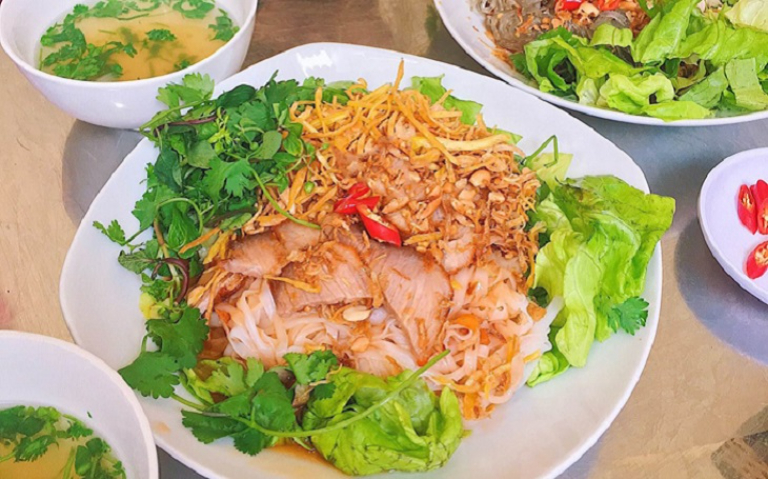
8. Steamed Rice Rolls
Breakfast favorites for residents as well as guests include Ha Giang’s steamed rice rolls. These rolls are presented with a tangy fish sauce on the side after being made by pouring thin layers of rice batter onto a cloth stretched over steaming water then filled with minced pork and mushrooms. topped with fresh herbs and crispy shallots, this Ha Giang meal has a rustic appeal and a strong, savory taste that is ideal with a morning cup of tea.
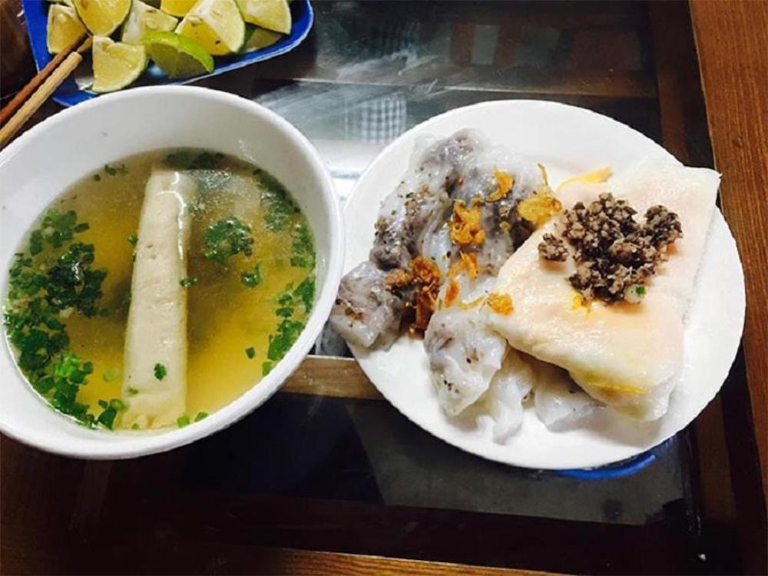
Essential Tips for Your Ha Giang Travel
How to Reach Ha Giang
Travelers from Ho Chi Minh City can fly or take a train to Hanoi, then a bus or private vehicle to Ha Giang. The bus ride from Hanoi to Ha Giang takes around 2 hours from Noi Bai International Airport. If you’re traveling from Hanoi, options include sleeper buses, cars, or motorbikes. There are several buses departing from My Dinh Bus Station, with tickets ranging from 250,000 to 300,000 VND per person.

Once in Ha Giang, guests may tour the area such as Ha Giang Loop using local buses, vehicles, or motorbikes rentable. For adventure and great flexibility, renting a motorbike is absolutely advised.
What to Prepare for a Ha Giang Trip
Thinking of visiting Ha Giang? Whether you’re on a Ha Giang Loop tour or alone, make sure you have the correct paperwork ready—such as your ID or passport—should unanticipated circumstances arise. If you ride a motorbike, find out about surrounding repair stores along the way to be protected in case of any vehicle problems.
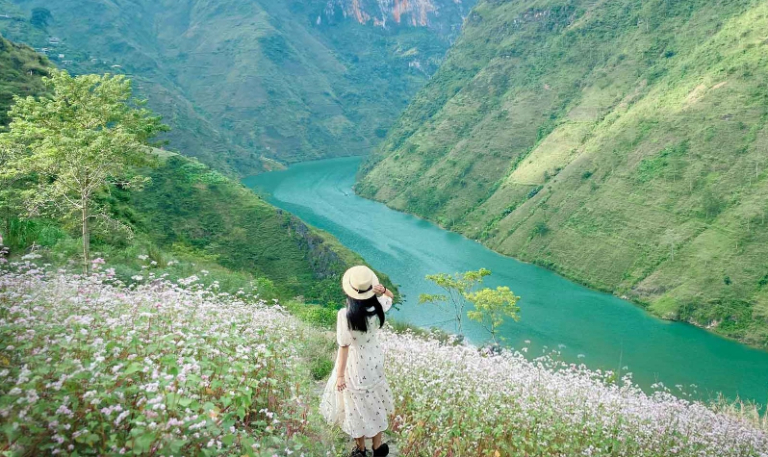
What to Pack for Ha Giang
When it comes to Ha Giang travel, choosing the correct attire is crucial since the season will greatly affect the weather of the area. Ha Giang could get somewhat chilly in winter, thus it’s suggested to take thermal wear and cozy clothes. Though the summer brings pleasant weather, carry a light jacket since evenings are often cold.
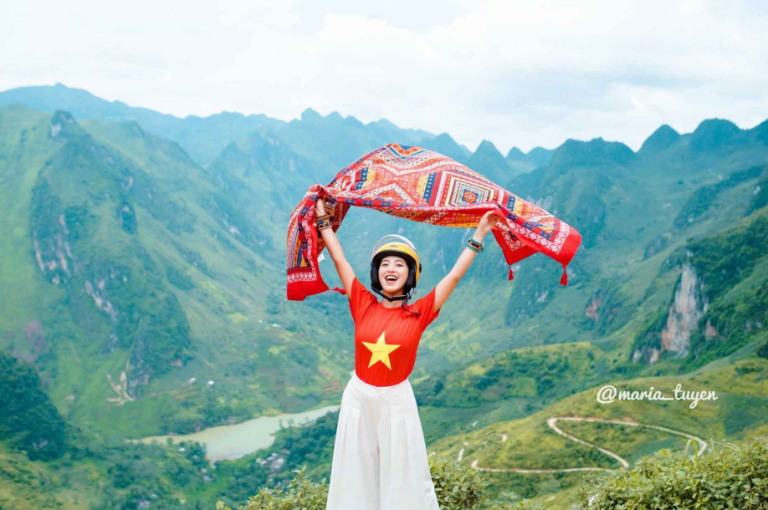
Ha Giang is a mountainous region, hence it is advisable to wear appropriate hiking shoes for simple mobility. Remember to include for your trip bug repellent and basic medications for headache or stomach ache.
>>> Explore Ha Giang Loop Packing List for Different Weather Conditions
How Much Does a Ha Giang Trip Cost?
Traveling to Ha Giang can have rather different expenses depending on several elements, including the kind of lodging, the mode of transportation, and the services you apply. Your budget will also be impacted by your stay length. Ha Giang travel is mostly about discovery and experiencing local culture and scenery, despite these differences; usually, this keeps expenses cheap.
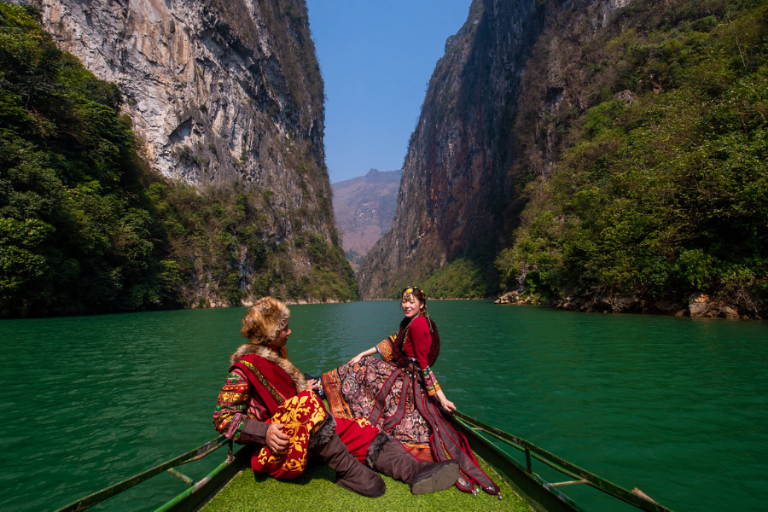
Many travellers have found that a full journey to Ha Giang would cost between 3 to 4 million VND (150$ – 200$), which will let you take in the most famous sights and experiences of the area.
Ha Giang travel offers an unforgettable experience for those seeking natural beauty, cultural insights, and unique adventures. Ha Giang delivers a trip unlike any other whether your interests are in discovering the stone plateau, riding the Nho Que River, or appreciating the difficult terrain of Ma Pi Leng Pass. Arrange your visit to Ha Giang today to explore one of the most fascinating areas of Vietnam.
Related Posts:
- What Makes Meo Vac District in Ha Giang Special? A Complete Guide to Exploring This Borderland
- Discover Hoang Su Phi District: The Breathtaking Rice Terraces of Vietnam
- Quan Ba District in Ha Giang | A Hidden Gem in Northern Vietnam
- Yen Minh District | Exploring the Enchanting Landscapes of the Highland
- Xin Man Ha Giang Travel Guide: Discover the Untouched Beauty






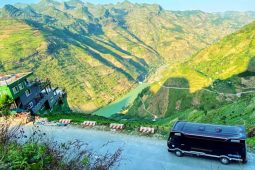




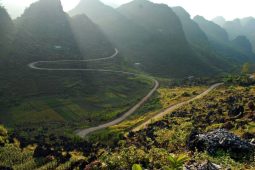
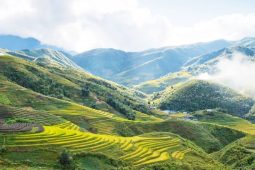

Be the first to comment!